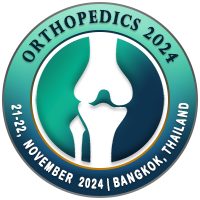
Sana Haseeb Khan
Assistant Professor, Gulab Devi teaching hospital, Lahore, PakistanTitle : Diagnostic Challenges In Antiphospholipid Antibody Syndrome
Abstract
Antiphospholipid syndrome (APS) is characterized by venous or arterial thrombosis and/or an adverse pregnancy outcome in the presence of persistent laboratory evidence of antiphospholipid antibodies (aPL). This may occur as a primary condition or a part of another autoimmune disease such as systemic lupus erythematosus.
APS can be further classified according to the type of clinical manifestation. This involves
1. Thrombotic APS
2. Obstetric APS
3. Catastrophic APS
The clinical criteria in the presence of aPL makes a complete diagnosis of APS. In the presence of symptoms suggestive of other autoimmune disease, further testing may be needed. A lot of confounders effect the results of antibody testing. Hence, precise knowledge about timing of the test, patient’s anticoagulation status and revaluation of titres is need of the hour. The interpretation of these tests in the light of clinical picture can predict the prognosis and guide the management plan.
Sero negative APS is a term in which clinical criteria is fulfilled in the absence of laboratory evidence. It is emphasized that management remains the same in both the entities. However, it is important to rule out the possible mimickers of the disease in such cases. Additional testing may lead to detection of non-criteria antibodies.
Owing to the recent pandemic of Covid-19, few studies have shown the presence of transient presence of aPL. This has not been able to be well-linked to the thrombotic aspects of Covid-19.

